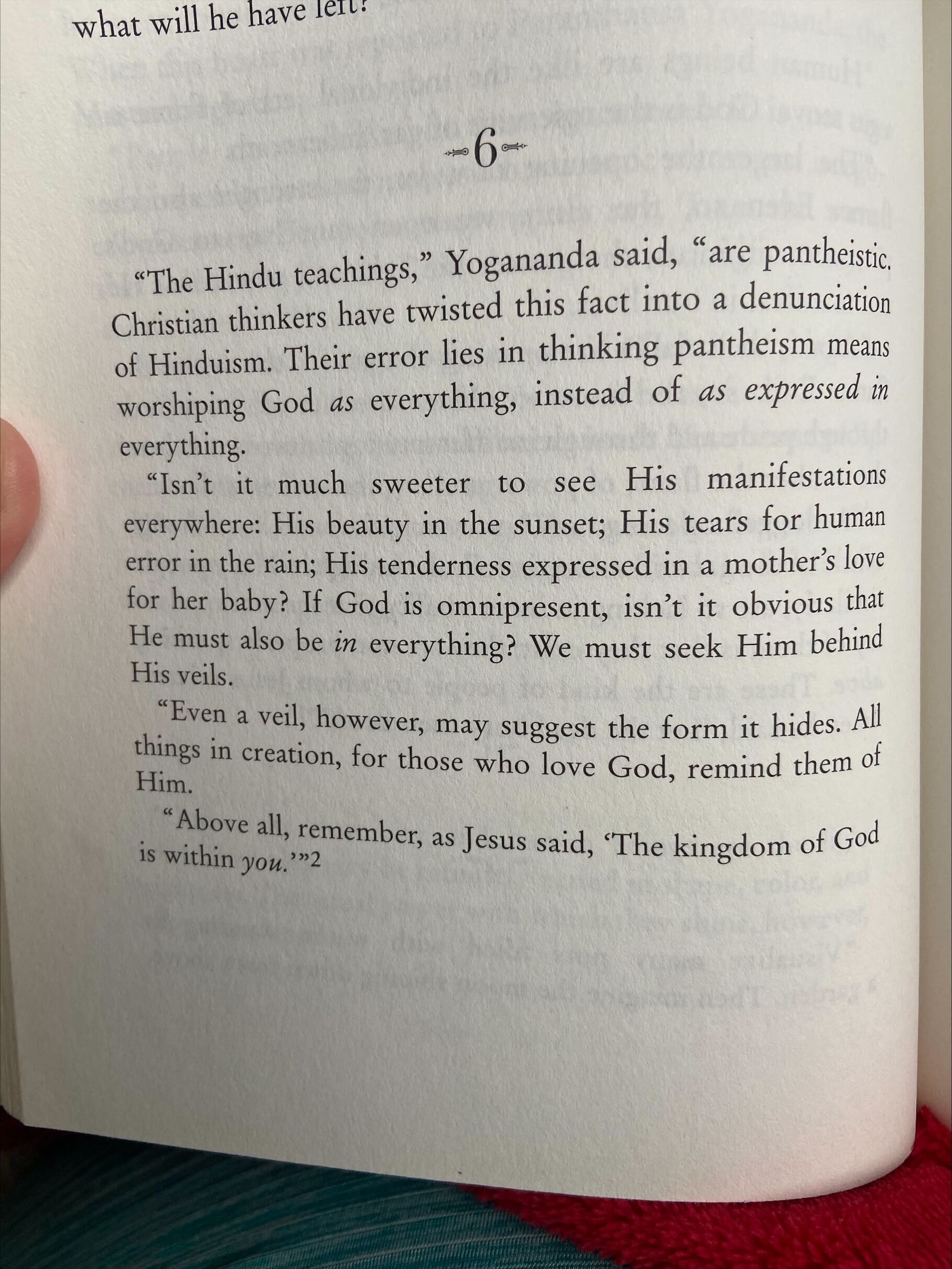He may not have been a member of my learning and development community (The Perspective Shifters Hub) but rest assured, Jesus was a Perspective Shifter. Anyone who knows me knows that I like to play what some people call “devil’s avocate.” (If you’re like me you just wondered where that term came from, I’ve got you covered because I researched the etymology.) I call that type of person a “perspective shifter.”
I’m about to dive into the deep end on this subject prompted by a reply on a post that I shared earlier today. I’m doing this, for a couple of different reasons. In part, it’s because in typing out a reply I realized that it was too long to be a comment. It’s also because in order to truly express the depth of reflection that I’ve done over my life about this subject, I needed words. The benefit of doing it here was because you need unnotified attention. So we are both served by me taking this off of social media.
What is a Perspective Shifter?
To be able to be a Perspective Shifter, you have to be able to listen to someone. Not just hear the words that they are saying, but truly seek to understand. This means that when someone says something that confronts your core beliefs, (the parts of you that make up how you see and express yourself,) you are fearless. You can put your thoughts and emotions on hold to hear them through. This is THE most challenging part of being a Perspective Shifter. It’s also the CENTRAL part of being a Perspective Shifter.
A Perspective Shifter must understand that seeking perspective is an exchange, it means delaying judgement until you can truly understand. It also means understanding how perception works. How every person is unique and their life experiences, beliefs, and emotions shift them. How our brains are hard wired to create second to second perspective changes in order to keep us safe.
If you’re a Christian reading this, I want you to read this blog post as a perspective shifter. Delay your judgement until the end. In order to dig into this subject to the depth in which I’m about to, I must challenge your perspective from start to finish. I am not challenging your faith, or God. I am simply offering another perspective.
As I explain, I know that your thoughts will fight you when you read something that may conflict with your beliefs. It will trigger you to want to argue. Truthfully, this may be a challenging read. It’s normal and it’s natural. I promise if you hear me out, the teachings will most likely reinforce your own beliefs to a greater degree and maybe allow you a certain freedom to find an even deeper faith.
W.W.J.D? Well, no one really knows.
I could talk with you all day around perspective and how humans are influenced by their surroundings but, let’s get down to the truth about the written stories we know as the Bible.
On one hand you have scholars who believe the words that were written in the original bible say that something is a sin. Actually, there are SO MANY THINGS they claim as sin, and we wont get down to the apparent “degree” to which they are sinful. You have religious leaders through history that were so convinced of the truth in the bible that they have institutionalized hate and violence against non believers. One could argue it may have been in search of God, but I believe it was more in the search of power. I believe that because they’re the same people who encouraged “conversion” efforts that killed millions in just the recent century.
On the other hand, you have scholars who disagree with the translations of words, claim that there are other books, and in general, question the authenticity of the bible. So who are we to believe? My Christian friends will state, unequivocally that the bible is the word of God. It is the only truth.
I support your right to believe that fully, however I have to ask… what does The Bible really say? No one alive today knows what the original biblical texts ACTUALLY said because those texts no longer exist. We cannot scrutinize the biblical accuracy of anything written in our current versions of the bible because the original manuscripts of scripture are no longer in existence. While historically we believe that what we have is accurate, based on the original copies from early existance; the truth is that there is no one alive today that could attest to that.
So what are you reading?
Your Bible, the one on your kitchen table or on your night stand or in your study… Is most likely a distant relational copy of the “Gutenberg” Bible. (More Rabbit Holes here: https://en.wikipedia.org/wiki/Gutenberg_Bible) Which was in German, and translated from Latin. That bible is full of scriptures (and historical accounts) made by man and perceived by man. Which, through history and several translations of previous texts, is also distorted by men who were not infallible. You have to admit that, at least in part, some of that book bares the perception of the laws of man at the time it was last translated and re-printed. Not to mention the perception of the laws of man at the time of those who wrote the original accounts. I have had clergy use that exact thing as a justification for the contradictions that are in the bible.

The Bible you read is also not complete either, It is missing books and testimony from others of the time. And I would argue that it may even be missing some accounts that we don’t know about, because they haven’t been found or perhaps were destroyed along the way. These accounts and testimonies though, they were written from the perspectives of men who took wisdom from others in the same way that we take wisdom from others: from our own perspective. Every person understands God in their own way… and so did Jesus and his disciples.
It’s all a copy of a copy.
Re-told from texts that are no longer available for us to truly know and understand. Scholars are arguing, and I deduce will always be arguing, about translations from words that were spoken and understood thousands of years ago. Words that were then written down decades to thousands of years after that. And you read the interpretations of men who translated those written accounts. Which were then re-copied millions of times over hundreds of years.
So, what?
The Bible is one of many religious and cultural texts that you can use as a tool to better understand YOUR relationship to God. As a tool to gain perspective, and faith. I believe that by studying and following in the footsteps of men like Jesus, regardless of whether you consider him to have fulfilled the Jewish prophecy of the son of God or not, you can find a healthy an loving relationship with a higher power. And you can of course call this higher power God, if you would like. However, what you must be willing to do is seek understanding and shift your perspectives.
About Jesus
Let’s be really clear: Jesus didn’t have a Bible. By all accounts, he was a human with flesh and blood. One might assume that he also had a brain that worked like ours. It’s fair to say that he wouldn’t be human, or be able to live the human experience if he wasn’t. Jesus was Jewish. He was raised to believe in a Jewish God and in Jewish prophecy. Through seeking understanding, he understood God to be more than what Jewish leaders were preaching. Jesus sat down with the very educated and very religious men of his time and asked a lot of questions, often challenging them on what they knew to be FACTS. Perspective shifting is about seeking out perspectives and information OTHER than what’s in front of you. Perspective Shifting is LITERALLY following in Jesus’ footsteps.
As he was exposed to others, Jesus began to learn about other faiths and he challenged those he learned from to seek different perspectives. It was only through his challenging of perspectives that he gained followers and became the “super star” he was in his time. I believe that if he had been born today, Jesus would have been fascinated to learn about how the stories in the traditional Jewish texts are found throughout cultures and traditions all over the world dating to thousands of years before he was born.
Christ’s teachings
In the Old Testament, the word for sin is “khata”, meaning “to fail” or “to miss the goal.” (I looked that up here.) Christ may have preached against “sinning” because he had found God and when others wanted guidance, he shared his understanding. He preached to people who wanted to be close to God. He never shamed anyone or pushed people away, he gave guidance to those who asked for it.
It’s my understanding that Jesus believed that by abstaining from sin it brought him closer to God. Rituals like fasting, meditation and prayer, solitude and silence brought him closer to God. I don’t ever remember Jesus saying that if you converted people you woul find God. He encouraged those who truly wanted to find God to avoid sinning, to practice their spirituality in a dedicated and heartfelt way. However, he never said that they should force others to follow his teachings. He warned both in words and in action against judging others from their own beliefs. He communed and prayed with people without judgement and sought the perspectives of others.
Jesus sought the teachings of others and challenged them – questioning what didn’t sit right, what didn’t feel right. He believed so deeply in his own divine connection that he was constantly questioning the beliefs of his time. His faith in his own connection was what allowed him to speak about God and his beliefs. That faith allowed him to challenge others to see a different perspective, while gaining a new one that brought him closer to God. When Jesus would need to reaffirm his faith, to sit in that connection to God, he didn’t pull out his pocket bible. He would retreat into solitude and away from others. He went back to nature, away from people, and into meditation. Jesus didn’t know his faith through a book but through himself.
What Christ Didn’t Teach
Jesus was murdered for being a heretic. He went to his death because his beliefs flew in the face of traditions. This sounds so familiar to me today. I believe that the judgemental christians who claim to believe in Christ today would want the death penalty for a modern day Jesus too.
Christ never said to use his teachings as a rightous call to war. He never requested his followers to take up arms against his enemies. Christ never called his followers to lobby the government for laws that ensured that every person believed what he did. Christ never shunned the sick, the homeless, the disabled, the “unpure” or those who were pagan.
He broke bread with people that he knew would betray him. He washed the feet of the sexually impure, and he performed miracles for people that society had shunned. As a little girl I always felt “different.” I never understood the principles of “Well, it’s just how it is.” or “Because I said so.” I’ve always been the one who is “difficult.” I challenged the church and my mother and those around me.
When I was 11, I was baptized. I remember telling my mom that I wanted to be Jesus when I grew up. She told me I couln’t be Jesus, because I would never be perfect, and maybe that’s true. At 15 I fell away from the Christian church. I tried several times in the last 23 years to return. Each time getting nuggets of truth before hate and jugement and seething disdain came seeping out from behind pulpits. It never felt right, so I left for good in 2015.
Why I don’t like to consider myself a Christian
It wasn’t until recently that I realized I have always followed Jesus. I claim to be a pantheist, which is an explanation for another time. Despite knowing that I follow Jesus, it’s hard to claim to be a Christian now. I’m not alone in my reluctance to claim to be Christian, because it means something different now. Each of us have our own perspective on the word.
Personally, I find the word itsself (Christian) to be a trigger for me. When someone that I don’t know tells me that they are “Christian” my stomach turns. It’s a fight or flight reflex. Sadly, I have come to realize that I am not physically safe around some “Christians.” I personally have never hurt by anyone claiming to be Christian. I have, however, had first hand looks at the darkness and hate that is masked by the religious title. Is this stereotyping? Absolutely, which is why I challenge myself to challenge my beliefs of what a christian is.
The truth is, I am a Christian
I have had the debates, I have challenged the perspectives, and I have seen how the “beliefs” affect humans. Beliefs that aren’t rooted in faith, but in social norms, have become rallying cries for violence and death. Our world’s written and oral histories are blood red with conflicts over morality and the inevitable revenge from those who were scorned. Our world’s most recent tragedies stink with the hate and judgement of this petty disagreement over “right and wrong.” Which is why I speak so much around Perspective.
I try hard not to judge others even when my every instinct is telling me to. You are a person just like me, and you have your own experiences, and your own understandings. I may not agree with you and if I feel so emboldened or by request, I may share my perspective with you. If I do, I implore you, don’t take my perspective as a judgement. You are a human just like me, with your own thoughts, feelings, and experiences. You are just as entitled to your perspectives and passionate mayhems as any other person.
My spirituality doesn’t fit in your box.
Some of the Christians in my life who are not perspective shifters still “pray for me.” They want me to believe what they do, to believe that the Bible is where I should search for faith. They believe with every part of them, that I need to be “saved from my sinful ways.” What they don’t understand is that I know Jesus. I know him in a spiritual sense, more closely than I ever knew him in the church. The spirit and intention of who Jesus is portrayed to be by the bible lives passionately with me.
What many of my Christian friends don’t understand is that what I believe it means to follow Jesus. When I agreed to be baptized, I had decided to follow in Jesus’ footsteps. Mom was right, I’m not perfect, but I question everything, ask for clarification. I seek wisdom in concert with the spirituality that I have come to know, love, and trust with complete faith. As a Perspective Shifter, I will preach out against the things that foster hate and division. I challenge the areas where people aren’t aligned with their truth. Disconnection between fundamental beliefs creates disharmony and a rift between people and whoever or whatever higher powers they believe in.
Truly following Jesus is being a Perspective Shifter
I have consistently told those around me to not believe everything you read on the internet. More importantly, I have constantly told them to seek their truth. Now I will tell you: seek out information that challenges your beliefs, no matter what your beliefs are.
It is our rigidity to beliefs of a moral right and wrong, that makes it easy for us to lose our spiritual connection. When we believe so strongly in “right” and “wrong” it leaves very little room for understaning. This gets us easily hurt, offended, and victimized, which can cause us to feel hateful and vengeful. Morality makes us bias and gives us prejudice and closes us off to any views that don’t match our own. It makes us self-rightous and hypocritical. We push people away from us who need us. I deeply believe that the judgement attached to morality creates an unhealthy and wounded relationship with God for ourselves and others.
When we truly follow Jesus’s example, we begin to understand that he shared his beliefs of “right and wrong” with others, not as a justification for judgement, but in an effort to shift perspectives, both his own and other people’s. His intentions did not begin with conversion, only the desire to better understand. It was through his questions, and his dedication to the truth that he found HIS truth. It was through him giving others the opportunity to share their truth that it allowed him to share his. He created an entire movement dedicated to compassionate leadership and perspective shifting. That movement created an entire religion with millions of followers and it changed the world.
Jesus was a Perspective Shifter.
If you’d like to chat more about this, I really do love to dive into conversations like this. Feel free to book a time to chat with me.




Well done!
What a wonderful perspective. I agree, he surely was a Perspective Shifter and a Wisdom Seeker.